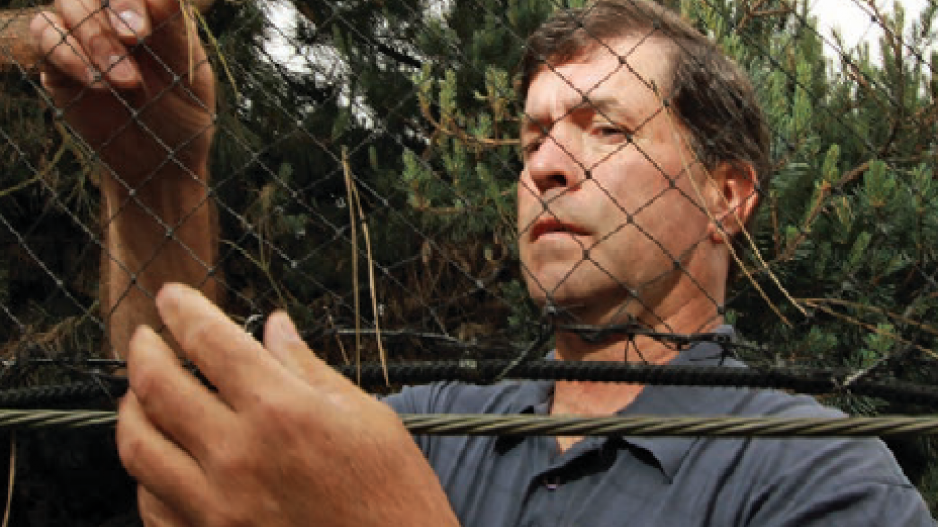For six generations, Mark Wilson’s family made a living as commercial fishermen. But in the mid-1990s, the Delta-born Wilson realized he could not make a go of it on the open seas. So he decided to use his fishing knowledge, specifically how to make a strong, durable net, to create a new venture.
Today, Netex Canada Netting Inc. is a prime source of netting for baseball stadiums, golf courses, hockey arenas and tennis courts, as well as for non-sporting facilities. Netex clients include major-league teams and their affiliates (Philadelphia Phillies, San Francisco Giants, San Diego Padres), all nine pro teams in South Korea’s KBO League plus their affiliate teams, many golf courses throughout Canada (among them Point Grey, Marine Drive, Morgan Creek, Furry Creek, Riverway and Whistler) and some National Hockey League teams, including the Vancouver Canucks.
In addition to backstop netting, Netex constructs batting and pitching cages and, come September, will expand to become a distributor for numerous baseball and softball products, including artificial turf, artificial mounds, drag mats, line markers and bases.
Though he has competition from larger firms in the United States and Eastern Canada, and smaller netting companies in Western Canada, he said Netex is the only company in Canada that fabricates the netting and installs it.
“We build the net, put the poles up, do the rigging and all the installation,” he said.
Not that the company is huge. Netex has just six employees, and will grow by another two to four in the fall.
“I don’t like to get too big. I like to control the quality,” Wilson said. “We make people wait for their product, and if they can’t wait there is always someone else in line. It may sound like a bad business practice, but if you go too big, you lose some of that quality control. One bad job can turn you around for a few years.”
Wilson’s attention to detail hasn’t left him hurting for clients. At the time he spoke to Business in Vancouver, he had just returned from a baseball job in Iowa and was in Delta to erect netting for the driving range at Ladner’s Cove Links Golf Course, before hitting the road to work at a landfill in Lethbridge. While we spoke, he took a call from a Richmond indoor golf facility, asking for Netex netting.
One client, for whom Netex performed a complete practice-facility renovation in 2010, praised the company’s resourcefulness.
“Netex was very helpful in not only the installation of the system but the design as well,” said Alan Kristmanson, director of golf at Whistler Golf Club. “They understand the golf industry and practice facilities and continually come forward with ideas to ensure our system is the best it can be.”
As a fisherman, Wilson had 15 years’ experience building nets, and when a friend told him the driving range at the Delta Golf Centre needed netting, Wilson took the job, enjoyed the work and discovered that only one other company in Canada at the time did what he could do: manufacture and install the product. He started Netex in 1997 with one other employee and rented a small facility to manufacture the netting.
Stadiums want netting that is durable enough to protect spectators from balls and pucks, yet fine enough to be virtually invisible to people watching a game through them. Netex uses a polyethylene fibre called Dyneema, which Wilson describes as “the strongest fibre you can use to produce a thin mesh size and yet have the strength that you need for containment.”
He said the company has the thinnest netting for both baseball and golf, and in 2016 will bring out the thinnest netting for the National Hockey League.
Netex is completing work at the $3 million indoor baseball facility at the University of British Columbia, has a similar contract in the works with the University of Nevada, Las Vegas, and is working on material for a 220-acre, $100 million baseball facility in Wyoming.
Wilson said he could also do work for prisons – “so people can’t come and throw things into prison yards for their friends.” •




